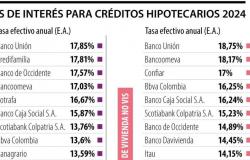Bloomberg— The euro fell in early trading due to growing political uncertainty in Europe following weekend parliamentary electionswhile the dollar remained stable.
The coin fell as much as 0.3% to its lowest level in about a month, rising less than its major peers. U.S. stock futures barely moved in early trading.
Meanwhile, Asian stock futures fell on Friday as traders reduced bets on the Federal Reserve easing, although most major markets are closed on Monday for a holiday.
The dollar was steady against its major peers in early trading, after rising to its highest level in more than a month following a strong jobs report that prompted a rethink on the Federal Reserve’s interest rate cuts.
US Treasuries plunged on Friday, sending yields over 10 basis points, and swaps no longer anticipate a Fed taper before December. Nonfarm payrolls rose by 272,000, exceeding estimates, and wages accelerated, while the unemployment rate rose to 4%. The S&P 500 Index and Nasdaq 100 finished off session lows, with the data helping to ease concerns about an economic slowdown that could hit earnings.
Looking to the future, Federal Reserve and Bank of Japan policy meetings to take center stage later in the week. Data highlights include revised growth figures from Japan on Monday and UK wage numbers later, inflation from China and US consumer and producer price figures.
Fed swaps are trading lower for the first time ahead of the December FOMC | Fed-matured OIS are trading higher again after strong May jobs report(Bloomberg)
The latest employment figures highlight a labor market that continues to defy expectations and cushion the impact on the economy of high interest rates and prices. That strength risks keeping inflation pressures stubbornly high, which will likely reinforce the Fed’s cautious stance.
“We still expect the Fed to cut rates in September, but another set of data like today would probably rule that out as well,” said Seema Shah, chief global strategist at Principal Asset Management. “The positive news, however, is that with such a strong labor market, the U.S. economy is far from being in recession territory.”
Economists at Citigroup Inc. and JPMorgan Chase & Co., among the few still predicting a Fed cut in July, changed their forecasts after the jobs report. Citi’s Andrew Hollenhorst now sees cuts in September, November and December. JPMorgan’s Michael Feroli predicts a Fed taper in November.
The Fed’s meeting in June will be one of the most crucial this year, as Chairman Jerome Powell could provide the clearest clue yet on the timing of rate cuts, according to Bloomberg Economics’ Anna Wong.
With the Fed widely expected to keep rates unchanged, the focus of the meeting will be the new Summary Economic Projections. In March, Fed officials maintained their outlook for three rate cuts in 2024.






